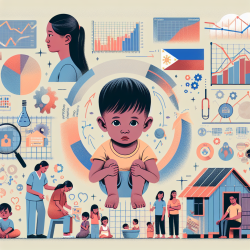Introduction
The rapid growth of genomics research in Africa has brought to light significant challenges in ensuring that participants fully comprehend the informed consent process. A recent study titled Qualitative study of comprehension of heritability in genomics studies among the Yoruba in Nigeria explores how indigenous linguistic and cultural concepts can enhance understanding and engagement in genomics research.
Understanding Heritability Through Indigenous Concepts
The study conducted focus group discussions and key informant interviews among the Yoruba people in Ibadan, Nigeria, to uncover linguistic and cultural concepts that describe heritability. The findings revealed a rich tapestry of words, proverbs, and aphorisms used to communicate genetic traits and diseases. These indigenous expressions provide a culturally relevant framework that can be leveraged to improve comprehension of genomics research.
Implications for Practitioners
For practitioners involved in genomics research, integrating these indigenous concepts into the informed consent process can significantly enhance participant understanding. Here are some actionable steps:
- Utilize Local Language: Incorporate local dialects and expressions that participants are familiar with to explain complex genetic concepts.
- Engage Community Leaders: Work with key opinion leaders and custodians of cultural knowledge to develop consent materials that resonate with the community.
- Develop Enhanced Consent Forms: Create consent forms that include indigenous words and concepts, making them more relatable and easier to understand.
Encouraging Further Research
The study underscores the importance of conducting further research to explore indigenous concepts in other African communities. Practitioners are encouraged to replicate this study in different cultural contexts to build a comprehensive database of indigenous concepts related to genomics. Such efforts will contribute to the development of culturally sensitive research practices that respect and incorporate local knowledge systems.
Conclusion
By embracing indigenous linguistic and cultural concepts, practitioners can improve the quality of informed consent and participant engagement in genomics research. This approach not only enhances comprehension but also empowers communities by valuing their cultural heritage. As genomics research continues to expand in Africa, integrating local knowledge systems will be crucial in ensuring ethical and effective research practices.
To read the original research paper, please follow this link: Qualitative study of comprehension of heritability in genomics studies among the Yoruba in Nigeria.










